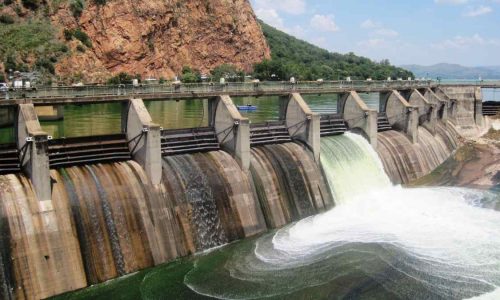Indonesia possesses the potential for carbon storage of over 500 gigatons, according to calculations by the Ministry of Energy and Mineral Resources (ESDM) and the Oil and Gas Institute (Lemigas).
“The country has a carbon storage capacity of 572.77 gigatons in saline aquifers and 4.85 gigatons in depleted reservoirs, as per calculations by the head of Lemigas under the Directorate General of Oil and Gas at ESDM,” Tutuka Ariadji, the Director General of Oil and Gas, said whil addressing the closing of the National Occupational Safety and Health Month at the Lemigas office on Tuesday, February 20, 2024.
Tutuka stated that the potential calculations were carried out in 20 basins for both saline aquifers and depleted oil and gas reservoirs.
The North East Java Basin has the highest potential, with a carbon storage capacity of 100.83 gigatons in saline aquifers and 0.151 gigatons in depleted reservoirs.
The Tarakan Basin has a potential of 91.92 gigatons in saline aquifers and 0.015 gigatons in depleted reservoirs. The North Sumatra Basin has a potential of 53.34 gigatons in saline aquifers and 1.07 gigatons in depleted reservoirs.
Additionally, the Makassar Strait Basin has a potential of 50.70 gigatons in saline aquifers and 0.059 gigatons in depleted reservoirs. Meanwhile, the Bawean Basin has the smallest potential, amounting to 1.16 gigatons in saline aquifers.
Tutuka mentioned that this carbon storage potential significantly updates the 2015 data of Lemigas, which only considered saline aquifers in Sumatra and Java.
“We have these figures, and they have been consulted with international institutions such as Equinor, BP, Chevron, and others,” he said.
With a potential of 572.77 gigatons in saline aquifers, the industry will utilize 10 percent of the total capacity in the initial stage.
Jodi Mahardi, Deputy for Maritime Sovereignty and Energy at the Coordinating Ministry for Maritime and Investment Affairs, said that Indonesia is at the forefront of the green industry era with a carbon storage capacity potential of 400 to 600 gigatons in depleted reservoirs and saline aquifers.
This potential allows for the storage of national CO2 emissions for 322 to 482 years, with peak emissions estimated to reach 1.2 gigatons of CO2 equivalent by 2030.
“Indonesia aspires to develop CCS technology and become a CCS hub to achieve the target of net-zero emissions by 2060. This initiative will not only accommodate domestic CO2 emissions but also promote international cooperation,” said Jodi last December.
Jodi stated that the CCS hub would be a new milestone for Indonesia, as CCS is recognized as a license to invest, especially for low-carbon industries such as blue ammonia, blue hydrogen, and advanced petrochemicals.
This approach is expected to bring breakthroughs to Indonesia’s economy by opening opportunities for new industries and creating a global market for low-carbon products.
According to Jodi, with neighboring countries such as Malaysia, Timor-Leste, and Australia also competing to become regional CCS centers, Indonesia must seize this opportunity as a strategic and geopolitical center.
“This initiative is expected not only to support Indonesia in achieving global environmental goals but also to stimulate sustainable and innovative economic growth,” he said.









